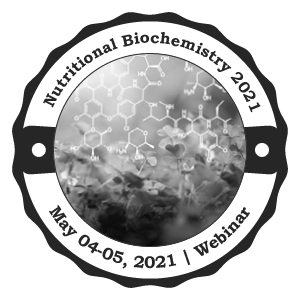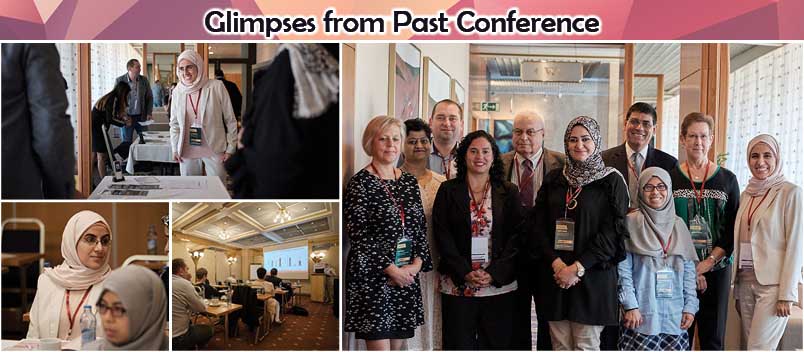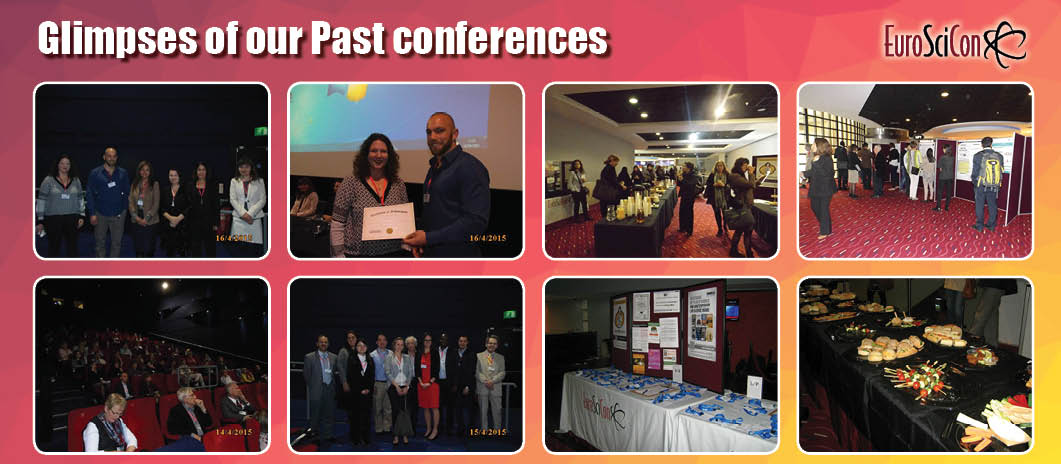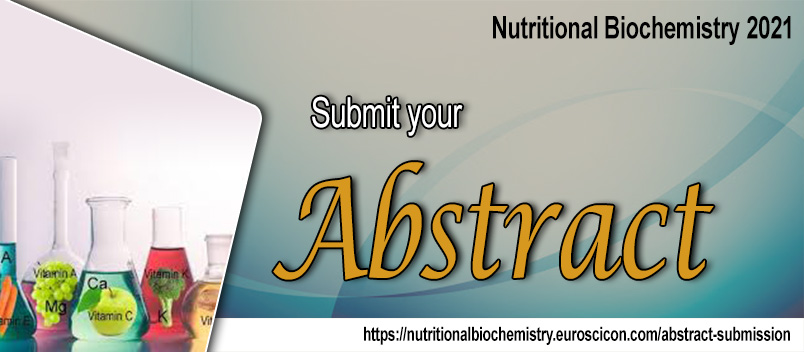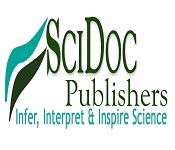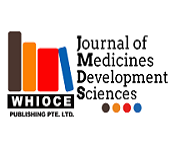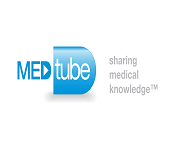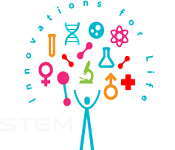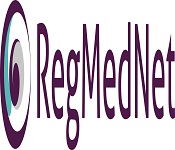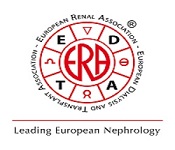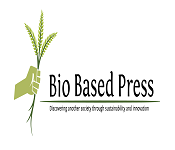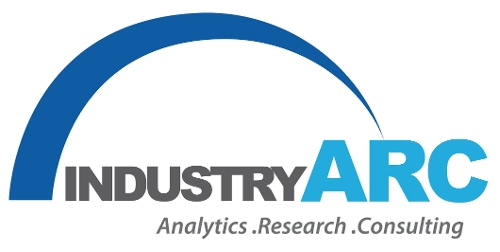nutritional biochemistry 2021
About Conference
Theme: Current advancements and its applications in Nutritional Biochemistry
On behalf of Nutritional Biochemistry 2021 Organizing Committee, we are pleased to invite Academics, Counsellors, Clinical Nutritionists, Registered Dieticians, Health-Care Professionals, Researchers and Scientists, Training Institutes, Universities and Colleges Students, Nutrition and Dietetics Associates, Nutrition and Dietetics based Companies, Business Entrepreneurs, Research scientists, Self-help group facilitators, Social workers, Teachers, Business delegates and Young researchers across the world to attend International Conference on Nutritional Biochemistry which is to be held on March 04-05, 2021 at London, UK. The Conference highlights the theme “Current advancements and its applications in Nutritional Biochemistry”. Nutritional Biochemistry 2021 will provide health practitioners a study of the key role of nutrition, Food Science and Public Health in health and healing.
Nutrition Conferences 2021 is pleased to invite Academicians, scientists, researchers, educators, professionals, practitioners, Nutritionists, Dieticians, Public Health, Sports Nutritionists, Probiotics Researchers and students to exchange ideas and be informed about the latest research developments in the field.
These Nutrition Conferences proceedings include symposiums and workshops, keynote speeches, plenary talks, poster sessions and panel discussion on latest research developments in the field of nutrition and dietetics.
International Nutrition Conferences will give a chance to talks on experienced sustenance related issues and difficulties in the field of nourishment. It will likewise help in advancing mindfulness and help in handling one of the basic issues of humanity.
EuroSciCon is the longest running independent life science events company with a predominantly academic client base. Our multi-professional and multi-Speciality approach creates a unique experience that cannot be found with a specialist society or commercially.
Euroscicon are corporate members of the following organisations
Royal Society of Biology
IBMS
British Society for Immunology
Opportunities for Conference Attendees
For Researchers & Faculty:
Speaker Presentations
Poster Display
Symposium hosting
Workshop organizing
For Universities, Associations & Societies:
Association Partnering
Collaboration proposals
Academic Partnering
Group Participation
For Students & Research Scholars:
Poster Competition (Winner will get Best Poster Award)
Young Researcher Forum (YRF Award to the best presenter)
Student Attendee
Group registrations
For Business Delegates:
Speaker Presentations
Symposium hosting
Book Launch event
Networking opportunities
Audience participation
For Companies:
Exhibitor and Vendor booths
Sponsorships opportunities
Product launch
Workshop organizing
Scientific Partnering
Marketing and Networking with clients
Euroscicon organizes International Nutrition Meetings annually across Europe, Austria, Ireland, Germany, France, Liechtenstein, Lithuania, Finland, Luxembourg, Hungary, Italy, Norway, Poland, Denmark, Macedonia, Greece, Portugal, Romania, Czech Republic, Switzerland, United Kingdom, Belgium, Scotland, Latvia, Ukraine, Sweden, Denmark, Spain, Netherlands Russia, Bulgaria, France, with solitary subject of quickening logical revelations.
About Nutrition
Nutritional Biochemistry is the investigation of sustenance as a science. Nutritional Biochemistry manages different investigations in supplements, nourishment constituents and their capacity with respect to people and different warm-blooded creatures, Nutritional Biochemistry particularly concentrates on supplement synthetic segments, and how they work biochemically, physiologically, metabolically, and in addition their effect on illness. Nutritious Biochemical research is for the most part required after characterizing dietary and wholesome needs in wiped out and solid people and the decrease of reactions of pharmaceutical medications.
Nutritional Biochemistry keeps up with the impression of system by which eating regimen impacts human wellbeing and disease condition. It basically contributes with the properties of supplements, distinctive dietary substitutes and the investigation of their physiological, metabolic, biochemical and epigenetic capacities. Nourishing natural science might be a joined kind of science since it consolidates physiology, pharmacology, solution, science, microbiology and science and executes these sciences particularly to investigation of ailment conditions, wellbeing, sustenance, and the associations that exist between them.
Sessions and Tracks
Track 1: Clinical Biochemistry
Clinical nutrition is the act of analysing if a man is devouring a sufficient measure of supplements for good wellbeing. A clinical nutritionist is worried about how supplements in nourishment are prepared, put away and disposed of by your body, alongside how what you eat influences your general prosperity. Experts in this field survey your dietary needs in view of your family and medicinal history, way of life and lab tests to make proposals on your eating regimen and individual wholesome needs. A clinical nutritionist may give counsel on changes to your eating routine that may help avoid illness.
- Enteral Nutrition
- Parenteral nutrition
- Role of Nutrition in prevention of disease
- Nutritional assessment
- Nutrition and Weight Status

Track 2: Cellular and Molecular Nutrition
Cellular and molecular nutrition studies are expected to give a superior comprehension about the etiology and the systems of illness. These discoveries help to assess the adequacy of preventive, and additionally remedial, dietary intercessions and in the long run prompt more normal methodologies for sickness counteractive action and control. And furthermore helps in distinguishing the quality supplement cooperation’s, and instruments by which dietary elements impact infection forms, which give the establishment of the field of Nutrition Science. Molecular nutrition (the study of interactions between nutrients and various intracellular and extracellular molecules) is one of the most rapidly developing fields in nutritional science. Ultimately, molecular nutrition research will reveal how nutrients may affect fundamental processes such as DNA repair, cell proliferation, and apoptosis.
- Advances in Carbohydrate, Lipid and Protein Metabolism
- Advances in Vitamin and Mineral Metabolism
- Nutrigenomics and Molecular Nutrition
- Role of Estrogen Receptor and Protein
- Cellular DNA Studies
- Gene Expression and Regulation
- Methods and Techniques in Molecular Biology
- Clinical Nutrition
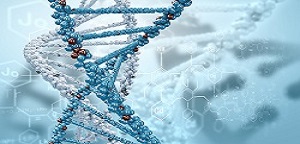
Track 3: Food & Nutritional Disorders
Without right nutrients a human might also suffer from diverse nutritional problems. In fact, there are not any much less than masses of various nutritional issues which can arise depending on deficiencies of various vitamins. Each nutrient serves its’ very own motive and an absence of every nutrient will lead to its’ personal precise maladies. A number of these disorders consist of Anemia, weight problems, Impaired vision. Nutritional deficiency arises when the body is not able to absorb the essential amount of nutrients. Malnutrition occurs when the body is not receiving adequate amount of the nutrients. Nutritional Deficiencies lead to a variety of Mental Disorders.
- Mental Disorders and Depression
- Fatigue Disorders
- Iodine Deficiency Disorders
- Lifestyle related disorders
- Other inflammatory and autoimmune diseases
- Malnutrition and associated disorders
- Vitamin and Mineral Deficiency Disorder

Track 4: Nutrition & Metabolism
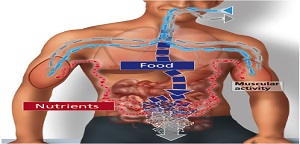
Nutrition & Metabolism content concentrated on the mix of nutrition, practice physiology, clinical examinations, and atomic and cell organic chemistry of digestion. The regions of enthusiasm of Nutrition and Metabolism include examines in heftiness, diabetes, lipidemias, metabolic disorder and exercise physiology that have a hidden premise in digestion. In like manner, we look for accommodation of compositions on the natural chemistry of digestion, cell flagging, atomic and cell science of supplements, supplement quality communications and different zones that have suggestions for human sustenance and pharmaceutical.
- Carbohydrate Nutrition
- Nutritional Counselling
- Nutritional Biology
- Nutritional Awareness
- Nutritional Assessment
- Nutrition Properties
- Nutrition Physiology
- Nutrient Signalling
- Nutrient Intakes
Track 5: Nutritional Biochemistry
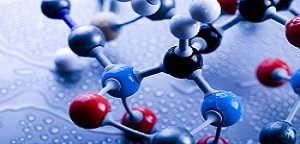
Nutritional Biochemistry manages different examinations in supplements, sustenance constituents and their capacity with respect to people and different warm blooded animals, nourishing natural chemistry particularly centers around supplement synthetic segments, and how they work biochemically, physiologically, metabolically, and also their effect on illness. Wholesome Biochemical research is for the most part required after characterizing dietary and nutritional needs in debilitated and solid people and the decrease of symptoms of pharmaceutical medications. Nutritional Biochemistry takes a scientific approach to nutrition. It covers not just "whats"--nutritional requirements--but why they are required for human health, by describing their function at the cellular and molecular level. Each case study either leads to a subsequent discovery or enables an understanding of the physiological mechanisms of action of various nutrition-related processes.
- Food & Nutrition Communication
- Nutri Genetics
- Clinical Biochemistry
- Nutritional Bioaccessibility
Track 6 : Agricultural and Food Chemistry
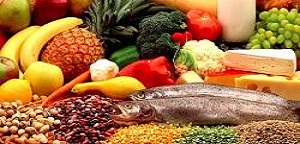
Agricultural and Food Chemistry look into managing the science and organic chemistry of horticulture and nutrition incorporating work with science and natural chemistry as a noteworthy part joined with organic, tactile, wholesome, toxicological assessment identified with farming and sustenance. Assembled into nine classes: Agricultural and Environmental Chemistry, Analysis and Chemosensory Perception of Flavor, Analytical Methods, Bioactive Constituents and Functions, Biofuels and Bio based Products, Chemical Aspects of Biotechnology/Molecular Biology, Food and Beverage Chemistry/Biochemistry, Food Safety and Toxicology, and Targeted MetabolomicsApplied to Agriculture and Food.
- Methodologies and applications in food analysis
- Chemical reactions in food
- Food science & technology
- Fertilizers and chemicals
- Plant protection and fertilization
- Plant & animal bio technology
Track 7 : Nutritional Endocrinology
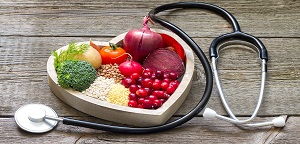
Infections of the endocrine organs feature the significance of hormonal and healthful factors in the direction of digestion in people. The nutritious changes influence every last part of the working of the endocrine organs prompting genuine clutters. The most recent century was set apart by the traditional insufficiency issue, for example, goiter, cretinism, hypothyroidism, and rickets. Industrialization combined with expanded accessibility of nourishment prompts the scourge of various nutritious endocrine issue, for example, stoutness, metabolic disorder, and diabetes. Nutrition and endocrinology are linked from time immemorial with the premise that adequate nutrition is required for stature growth. The spectrum is expanded later with recognition of thyroid disorders resulting from iodine deficiency. The association between childhood obesity leading to the metabolic consequences in adult life is a matter of great concern during the last couple of decades.
- Types of Endocrine Disorder
- Metabolic Disorders and Conditions
- Osteoporosis
- Neuro Endocrinology
- Pediatric Endocrinology
- Current Advances in Endocrinology Metabolism
Track 8 :Biochemistry of Food Allergens

The proteins inside sustenance’s that are allergenic address a wide grouping of proteins with limits that change from ability to enzymatic activity. General properties of sustenance allergens fuse an acidic isoelectric point, riches in the sustenance, quality to osmosis, and the proximity of various, coordinate IgE limiting epitopes. In any case, there are exclusions even to these to a great degree expansive properties making it about hard to envision whether a protein is a potential allergen. Since the headway of an IgE response to an allergen incorporates a movement of participations among antigen-displaying cells (APCs), T-cells, and B-cells, it is basic to continue portraying both B-cell and T-cell epitopes of known allergens.
- Food Allergy
- Allergy Clin Immunol
- Food Allergen
- Immunology Volume
Track 9: Clinical Biochemistry and Immunology
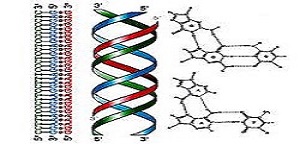
The Immunology gives subjective and quantitative examination of organic liquids, for example, blood, serum or plasma, pee, or tissues for particular compound constituents or physiologic procedures. Doctors utilize these test results to screen for, analyze or screen disease. The individuals from Clinical Biochemistry and Immunology are likewise occupied with connected research to make new analytic clinical lab tests to distinguish or screen infection, malady procedures, or treatment of ailment. Precedents of tests made by research centers subsidiary with Clinical Biochemistry and Immunology.
- Evaluation of immune factors causing disease
- Evaluation of endocrine organ function
- Monitoring response to cancer treatment
- Assessment of transplant immunosuppression
- Evaluation of genetic variation on routine therapies
- Assessment of nutritional status
- Evaluation of drug and metal toxicity
Track 10 : Food & Nutritional Metabolomics
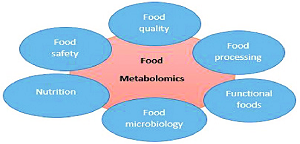
Unlike other technologies (genomics, proteomics…etc.), metabolomics gives organic understanding that mirrors an individual's one of a kind hereditary unique mark, as well as way of life, eating routine and environment. Utilizing metabolomics, scientists can quantitatively dissect non-hereditary variables that are included in postgenomic and posttranscriptional change. Nutritional metabolomics is rapidly emerging to utilize little atom substance profiling to support incorporation of eating regimen and nourishment in complex bio systems research.
- Nutrigenomics and plant functional genomics
- Food safety and contamination assessment using metabolomics
- Applications of metabolomics to food processing
- Metabolomics of genetically modified crops
- Metabolomics in nutrition research
- Dietary metabolites and cellular metabolism
Track 11: Nutrition, Health and Wellness
Nutrition, physical movement and other solid way of life practices are essential parts in the advancement of wellbeing and in the treatment of disease. Proper sustenance is basic to generally speaking wellbeing from ailment counteractive action to achieving your wellness objectives. This encourages us to distinguish a nourishment, physical action, social, careful and pharmacologic methodology for overweight and hefty grown-up and pediatric patients. Nutrition, Health and Wellness give advantages of physical action and create programs. Instructions to perceive the segments of smart dieting for patients. Distinguish supportive sustenance exercises and eating regimen applications. To perceive the significance of burnout among social insurance suppliers and ways to deal with the issue.
- Advances in Healthcare
- Healthcare System and Law
- Health and Safety
- Nutritional Policy
Track 12: Nutraceuticals in Health Care
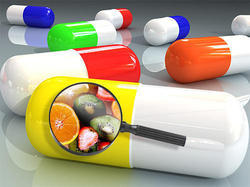
Nutraceuticals has enormous chances for growth and expansion in terms of health benefits. Depending on the nature and the alternative use as the modern medicines, it has shown subsequent results in reducing the need for conventional medicines and has reduced the chances of adverse effects. Nutraceuticals have emerged as beneficial health products obtained from many industries such as food, herbal, and pharmaceutical manufacturing industries. The significance of such products have been associated with the treatment of many disorders such as cancer, metabolic problems, cold and cough, depression, coronary heart disease, delayed gastrointestinal emptying, and many more conditions which need special care.
- Dietary Fiber
- Probiotics
- Polyunsaturated fatty acids
- Antioxidant vitamins
- Polyphenols
Track 13: Nutritional Neuroscience & Eating Disorder
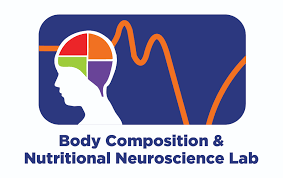
In spite of the significance of full of feeling forms in eating conduct, it stays hard to foresee how feelings influence eating. Accentuating singular contrasts, past research did not give careful consideration to the twofold changeability of feeling prompted changes of eating. Five classes of feeling incited changes of eating: (1) passionate control of nourishment decision, (2) enthusiastic concealment of sustenance admission, (3) hindrance of intellectual eating controls, (4) eating to manage feelings, and (5) feeling consistent balance of eating. These classes are recognized by forerunner conditions, eating reactions and intervening systems.
Impact of Nutrition in Brain Development and Function
Importance of Nutrition In Nervous System
Deficiencies and Symptoms
Factors Affecting Neuro System
Advances and Development In Neuro Science
- Impact of Nutrition in Brain Development and Function
- Importance of Nutrition In Nervous System
- Deficiencies and Symptoms
- Factors Affecting Neuro System
- Advances and Development In Neuro Science
Track 14: Plant and Animal Nutritional Biochemistry
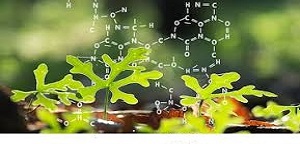
As plants additionally require some fundamental supplements to develop. Plants generally take sustenance as inorganic materials. A plant normally gets vitality from photosynthesis and sustenance from soil. From soil supplements can be given by the connection of different advances lastly it gives supplements to plants to develop. In plant sustenance numerous substance pathways are should be experience to yield the supplements. Plants likewise require smaller scale and large scale supplements to develop with no illnesses. Plant development administration can be ascertained or can be evaluated with the assistance of compound responses which happens in the supplement arrangement from the dirt as inorganic materials. Animal supplements very spotlight on the dietary prerequisites which are basic for the development and support of creatures. Like people creatures likewise require supplements in particular apportion. In light of the supplement admission and method of nourishment readiness creatures can be characterized in to gatherings. Autotrophs and heterotrophs are the two noteworthy classes in light of the method of sustenance admission. Creature's needs unsaturated fats in little sum since a large portion of the unsaturated fat can be discharged from its own body. Starches, proteins, fats are the other basic supplements required by creatures.
- Plant Nutrient Sources
- Animal Nutrient Sources
- Plant and Nutritional Nutrient Management
- Nutrient Deficiency in Plant and Animals
- Sources Autotrophic and Heterotopic Nutrition
Track 15: Nutritional Therapy & Treatments

Nutritional therapy is an integral cure, which can be utilized along universal cure. Specialists may run with clients who have persevering medical problems that traditional drug may moreover find hard to manage or with individuals who are intrigued by upgrading their wellbeing through weight count calories. The dietary Therapist works intimately with the purchaser to direct an all-encompassing assessment in their dietary prerequisites and to amass a man program for nourishment plan and supplementation that enables you to lighten stay away from disease. Nutritious Therapy is thought to be a corresponding treatment, which can be utilized close by universal prescription. Specialists may work with customers who have incessant medical issues that traditional solution may discover hard to treat or with people who are keen on enhancing their wellbeing through eating routine.
- Lipid diet
- Amino Acid Nutrition Therapy
- Nutritional Therapy
- Medical Nutrition Therapy
- Cognitive Nutrition Therapy
Track 16: Diabetes and Nutritional Biochemistry
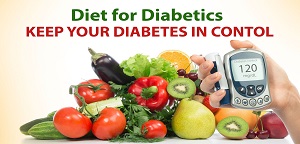
Nutrition is a critical part of diabetes care. Adjusting the appropriate measure of sugars, fat, protein alongside fiber, vitamins and minerals causes us to keep up a sound eating regimen and a solid way of life. Individuals who have diabetes have excessively sugar in their blood. Overseeing diabetes is dealing with your glucose level. What you eat is firmly associated with the measure of sugar in your blood. In particular, appropriate management of cardiovascular risk factors such as smoking, physical inactivity and poor diet is important for the prevention of macro vascular disease. Micro vascular complications may also be affected by adverse lifestyle factors, e.g. smoking. However, helping patients to modify certain behaviors should take account of other factors such as the patient’s willingness to change, their perception of their diabetes, and factors which may be indirectly related to their diabetes, such as depression and adverse effects on quality of life.
- Diabetes Pathophysiology
- Diabetes and Metabolism
- Pediatrics Diabetes
- The Heredity and Transformed Life Style Diabetes
- Alternative Treatment: Medicine and Therapies
- Diabetes Diet
Track 17: Sports Nutritional Biochemistry

Sports nutrition should include everything you consume in a day not just what you eat or supplement with around exercise or during a competition. Understanding what and when to eat on a daily basis will have a huge impact on your performance, mood, sleep, health and energy levels which should not be underestimated. Sports Nutrition focuses its studies on the type, as well as the quantity of fluids and food taken by an athlete. In addition, it deals with the consumption of nutrients such as vitamins, minerals, supplements and organic substances that include carbohydrates, proteins and fats.
- The Importance of Sports Nutrition
- Energy Supplements
- Recovery Supplements
- Weight Management
- Performance Enhancing Supplements
- Hydration and Sports Performance
- Nutritional Injury and Prevention Recovery
Track 18: Nutrition and Food

Food and nutrition are the way that we get energy for our bodies. We need to replace nutrients in our bodies with a new supply every day. Maintaining key vitamins and mineralsare also important to maintaining good health. For pregnant women and adults vitamins such as vitamin D and minerals such as calcium and iron are important to consider when choosing foods to eat, as well as possible dietary supplements. A healthy diet includes a lot of natural foods. Nutrition includes the process from eating food to its usage in various functions of body. The science of nutrition deals with what nutrients we need, in what quantity, how to get them and how the body utilizes them. Adequate, optimum and good nutrition indicates the right amount and proportion of nutrients for proper utilization for achieving highest level of physical and mental health. First function of food is to provide energy.
- Food Analysis
- Environmental Impact of Food Production and Consumption
- Functional Foods
- Fortified Foods
- Malnutrition and Under nutrition
- Dietician and Nutritionists
Track 19: Medical Nutrition
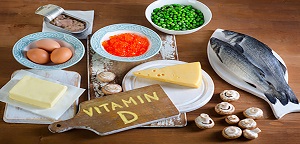
Medical nutrition therapy includes a wide variety of treatments based on the nutritional status of the patient. The intensity of the therapy varies greatly, ranging from a few changes in dietary intake to tube or intravenous feeding. Medical nutrition therapy is critical to the management of a variety of chronic diseases, is effective in managing disease, and is cost-effective. Medical nutrition therapy lies in the extremely high usage of parenteral and enteral nutritional formulas in many health care settings today. Parenteral feedings may allow people who are not able to take any food orally to get the nutrients that they need to survive.
- Dietary Needs and Disease Processes
- Probiotic Nutrition and Enteral Nutrition
- Nutritional Disorders and Treatment
- Effectiveness of Medical Nutritional Therapy
- Advances of Medical Nutrition
Track 20: Precision Nutrition

Precision nutrition is the link between precision medicine, precision prevention and precision health. Precision nutrition should be part of the normal daily diet to prevent and reduce the beside diseases we see typically in metabolic diseases.
Precision nutrition should be part of medical therapy, prevention concepts and a daily healthy lifestyle, e.g. healthy aging concepts. Precision nutrition should be part of medical therapy, prevention concepts and a daily healthy lifestyle, e.g. healthy aging concepts. Precision Nutrition research thus delivers a set of interventions that are easy to adopt to prevent disease and compress morbidity.
- Precision Nutrition, Big Data, Biomarkers and Enabling Technologies
- Personalized Nutrition for Disease Prevention
- Systems Epidemiology Approaches to Metabolic Health
- Systems Metabolism and Functional Biomarkers
- Engineering Food and Medical Foods for Human Health and Disease Management.
Learn More
Top Nutrition Societies Worldwide
Nutrition Related Societies in UK/ Europe:
French Society of Nutrition, France; German Nutrition Society, Germany; Swedish Society of Clinical Nutrition, Sweden; Belgian Nutrition Society, Belgium; The Danish Nutrition Society, Denmark; Finnish Society for Nutrition research, Finland; European Nutraceutical Association; Austrian Nutrition Society, Austria; Bulgarian Scientific Society of Nutriton and Dietetics, Bulgaria; Greek Society of Nutrition and Foods, Greece; Hungarian Society of Nutrition, Hungary; Iceland Nutrition Society, Iceland; Italian Society of Human Nutrition, Italy; Spanish Nutrition Society, Spain; Swizz Society for Nutrition, Swiss; The Czech Society for Nutrition, Czech; Unit for Nutrition Research , Iceland; Polish Society for Nutritional Sciences, Poland; The Irish Section of the Nutrition Society, Ireland; Swedish Society of Clinical Nutrition, Sweden; Portuguese Society of Nutrition and Food Sciences, Portugal; Norwegian Nutrition Society, Norway; Academy of Nutrition and Dietetics, Clevaland; Academy of Nutrition and Dietetics, Clevaland; The Nutrition Society, UK
Nutritional Biochemistry Related Societies in USA:
American Society for Nutrition, Rockville; American Society for Parenteral and Enteral Nutrition; International Society of Behavioral Nutrition and Physical Activity, Canada; Canadian Nutrition Society, Canada; The Nutrition Society; International Society Of Sports Nutrition; The Society for Clinical Nutrition and Metabolism; The American Nutraceutical Association; Health Foods and Dietary Supplements Association; Society for Nutrition Education and Behavior (SNEB), Indianapolis; Mexican Federation Of Societies Of Nutrition, Mexico; Brazilian Society For Food And Nutrition, Brazil; Argentine Society Of Nutrition, Argentina; American Public Health Association; School Nutrition Association; National Food Service Management Institute; Peruvian Nutrition Society, Peru
Nutrition Related Societies in Asia:
Japan Society of Nutrition and Food Science, Tokyo; Nutrition Society of India; The Nutrition Society of Sri Lanka, Srilanka; Nutrition Society Of Taiwan, Taiwan; The Society for Clinical Nutrition and Metabolism; Singapore Nutrition and Dietetics Association; Nutrition Society Of Bangladesh, Bangladesh; Chinese Nutrition Society, China; Hong Kong Nutrition Association Ltd; Nutrition Society of Australia; Dietitians Association of Australia; Professional Nutrition Associations; Nutrition Society of New Zealand; Public Health Association of Australia; Indonesian Nutrition Association, Indonesia; Japan Society of Nutrition and Food Science, Japan; The Korean Nutrition Society, korea; Nutrition Society of Malaysia, Malaysia; Parenteral and Enteral Nutrition Society of Asia (PENSA, Thailand)
Top Nutritional Biochemistry Journals Worldwide
Nutrition Related Journals from UK:
International Journal of Food Safety; Nutrition and Public Health; Journal of Food and Nutrition Research; Journal of Nutritional Science; Nutrition and Health; Clinical Nutrition ESPEN; Clinical Nutrition Experimental; International Journal of Food Sciences and Nutrition; Plant Foods for Human Nutrition; Journal of Nutrigenetics and Nutrigenomics; Ecology of Food and Nutrition; World review of nutrition and dietetics; Current Nutrition and Food Science; Journal of Nutritional Science; Food Science and Nutrition; Mediterranean Journal of Nutrition and Metabolism; Nutrition and Food Science; Progress in Nutrition; Food and Nutritional Components in Focus; Open Nutraceuticals Journal; Revista Espanola de Nutricion Humana y Dietetica; International Journal of Behavioral Nutrition and Physical Activity; Nutrition Research Reviews; British Journal of Nutrition; European Journal of Nutrition; Nutrition Research; Public Health Nutrition; Journal of Nutrition, Health and Aging; Food and Nutrition Research; Journal of the American College of Nutrition; NFS Journal; Journal of the International Society of Sports Nutrition; Journal of Nutrition in Gerontology and Geriatrics; Polish Journal of Food and Nutrition Sciences; Nutrition Clinique et Metabolisme; Nutritional Therapy and Metabolism; Cahiers de Nutrition et de Dietetique.
Nutritional Biochemistry Related Journals from USA:
International Journal of Nutrition and Food Sciences; The International Journal of Applied and Basic Nutritional Sciences; International Journal of Food and Nutritional Science; Nutrition & Food Science International Journal (NFSIJ); International Journal of Nutritional Science and Food Technology (IJNF); Journal of the International Society of Sports Nutrition; Journal of Nutrition; Journal of Food and Nutritional Disorders; Journal of Nutritional Health & Food Science; International Journal of Nutritional Sciences; Journal of Nutrition and Health Sciences (JNHS); International Journal of Nutrition and Health Sciences; American Journal of Clinical Nutrition; Journal of Nutritional Biochemistry; Proceedings of the Nutrition Society; Current Opinion in Clinical Nutrition and Metabolic Care; Journal of Nutrition; Nutrition Reviews; Annual Review of Nutrition; Progress in Lipid Research; Journal of Human Nutrition & Food Science; Advances in nutrition; Journal of the Academy of Nutrition and Dietetics; Critical Reviews in Food Science and Nutrition; Advances in Food and Nutrition Research; Revista Chilena de Nutricion; Anales Venezolanos de Nutricion; Journal of Parenteral and Enteral Nutrition; Journal of Nutrition Education and Behavior; Nutrition and Cancer; Nutrition and Dietetics; Nutrition Today; Journal of Pharmacy and Nutrition Sciences.
Nutritional Biochemistry Related Journals from Asia Pacific:
International Journal of Food and Nutritional Sciences (IJFANS); International Journal of Advanced Nutritional and Health Science; Journal of Nutrition and Intermediary Metabolism; The Journal of Nutritional Biochemistry; Journal of the Academy of Nutrition and Dietetics; Nutrition, Metabolism and Cardiovascular Diseases; International Journal of Food Sciences and Nutrition; Food and Nutrition Bulletin; Journal of Nutrition and Metabolism; Journal of Health, Population and Nutrition; Preventive Nutrition and Food Science; Recent patents on food, nutrition & agriculture; Malaysian Journal of Nutrition; Pakistan Journal of Nutrition; Asia Pacific Journal of Clinical Nutrition; Journal of Nutritional Science and Vitaminology; Chinese Journal of Clinical Nutrition.
Nutrition Related Job Opportunities in USA:
Supervisor IV (Nutrition); Nutrition Therapist III; Wellness Program Administrator; Director of Nutrition; Assistant Professor - Nutrition Education; Quality Assurance Nutrition Specialist; Nutrition and Health Advisor; Nutritionist; Public health nutritionist supervisor; Nutrition Program Consultant; SR Public Health nutritionist supervisor; Nutritionist Supervisor (Rome); Dietetic & Nutrition Spec III; Adjunct Faculty – Nutrition; AgCenter Project Coordinator (Nutrition Education Programs); Nutritionist III - Women, Infants and Children RCHD/RHHD; Nutritionist - Contract Opportunities Available; Technical Advisor, Community Nutrition; Senior public health nutritionist; Senior Clinical Nutritionist; Nutritionist ii; Senior Account Executive/Government Affairs - Nutrition/Healthcare; Health & Nutrition Services Coordinator; Community Nutritionist; Clinical Nutritionist/Registered Dietician; Extension Nutrition & Health Specialist; Nutritionist Dietician PV; Program Administration Specialist I/Nutritionist; PT Nutritionist; Nutrition Specialist; Nutrition Program Coordinator; Pilgrim's nutritionist internship; Nutrition Program Coordinator; Pre-Registered Nutritionist; PPG clinical nutritionist; Clinical nutrition specialist; Public health nutrition consultant; Part-time WIC Nutritionist.
Nutritional Biochemistry Related Job Opportunities in UK/Europe:
Nutritionist; Nutritionist 1 - Marcus Autism Center; Nutritionist-Cystic Fibrosis; Public health nutritionist; Nutrition Programs Director; Nutrition Scientist; Nutritionist freelance and mobile; Live in Nutritionist; Ayurveda Dietician / Nutritionist; Food Nutritionist/Dietician; Nutritionist - Remote Site; Nutrition Support Dietitian; Graduate Trainer - Adult Nutrition; Teacher of Health & Social Care / Food & Nutrition; Food and Nutrition (Home Economics) Teaching Job; Band 7 Nutrition Support Dietitian (Part Time); Sales Manager Nutritional Health Supplements & Sports Nutrition; Commis Chef – Nutritionist; Animal Nutritionist; Dairy Nutrition Advisor; Food Nutrition Manager; Ruminant Nutritionist; Senior Poultry Nutritionist; Nutrition Advisor; Food Nutrition Manager; Nutrition Associate; Poultry Nutrition Research Scientist; Regular Part-Time Nutrition Aide; Nutrition and Food Services Assistant; Medical & Nutrition Project Manager
Nutrition Related Job Opportunities in Asia Pacific:
Nutrition Counsellor; Internship For Nutritionist; Clinical Nutrition Executive; Internship For Food Science And Nutrition; Retail Nutritionist; Nutritionist product trainer; Animal Nutritionist; Healthcare Nutrition Solution Specialist; Nutrition Sales Consultant Job; Clinical Nutrition Specialist; Nutrition Health Coach; Clinical Nutritionist; Senior Nutritionist Dietician; nutritionist & Dietician; Senior Nutritionist; Nutrition counsellor/dietician; Nutrition Specialist; Nutrition Advisor; Nutrition Sales Representative; Nutritionist - Exotic Animal Nutrition; Food Nutritionist; Food & Nutrition Specialist; Emergency Nutrition & Health Program Manager; Nutritional Executive; Regional Nutrition Science Manager; Nutrition Service Assistant; Regional nutritionist; Junior Animal Nutrition Assistant; Nutrition Programme Advisor
Market Analysis
Summary:
Nutritional Biochemistry the summation of all processes involved in how organisms acquire nutrients, digests them, and uses them to backing all of life’s processes.
The focused region of Nutrition Biochemistry Analyser industry market includes North American, Europe and Asia etc., and the main country includes United States, Germany, Japan and China etc. North America is the leading region in Nutritional Biochemical Analysers following it is the European market is the largest market for Nutritional Biochemistry Analysers. The constant healthcare sector improvements and gigantic population base represented by the Asia Pacific region is expected to drive the importance in Asia Pacific Biochemical Analysers market.
Nutritional biochemistry is the study of nutrition as a science. Nutritional Biochemistry deals with various studies in nutrients, food constituents and their function regarding humans and other mammals, Nutritional Biochemistry specifically focuses on nutrient chemical components, and how they function biochemically, physiologically, metabolically, as well as their impact on disease. Nutritional Biochemical research is mostly involved upon defining dietary and nutritional needs in sick and healthy individuals and the reduction of side effects of pharmaceutical drugs. The top open access journals are peer reviewed scholarly journals of Nutritional Biochemistry. Controlling information through biochemical signalling and the flow of chemical energy through metabolism, biochemical techniques deliver upward push to the complexity of life. A good deal of biochemistry offers with the systems, features and interactions of organic macromolecules, together with proteins, nucleic acids, carbohydrates and lipids, which give the shape of cells and carry out some of the features associated with lifestyles.
Importance and Scope:
Nutritional Biochemistry is important factors in the promotion and maintenance of good health throughout the entire life course. Some 60% of the 10.9 million deaths each year among children aged less than five years in the developing world are associated with nutrition. Iodine deficiency is the greatest single preventable cause of brain damage and mental retardation worldwide and is estimated to affect more than 700 million people, most of them located in the less developed countries. Over 2000 million people have iron deficiency anaemia. Vitamin A deficiency remains the single greatest preventable cause of needless childhood blindness and increased risk of premature childhood mortality from infectious diseases, with 250 million children under five years of age suffering from subclinical deficiency.
As there is rise in the number of deaths due to diseases related to nutrition, it is essential to curb its rise and ensure good health. It is essential to follow proper nutrition rich diet in order to maintain good health. The keys to good nutrition are balance, variety and moderation. To stay healthy, your body needs the right balance of carbohydrates, fats, and protein — the three main components of nutrition. Nutritional biochemistry research contributes to the improvement of public health through quality research and a better understanding of the science involved in nutrition and dietetics.
Global Life science Market Share by Country:
Why to attend???
Meet Your Target Market with late business covers Nutritional Biochemistry making news which shows the colossal development in business sector esteem for Nutritional Biochemistry innovation till 2019. Since Nutritional Biochemistry interrelated with Euroscicon like Clinical Nutrition, Nutrition Pharmacology and Food Chemistry etc.it would be an awesome open door for organizations managing Analytical instruments valuable in these fields. Likewise, numerous up and participating so as to come understudies and scientists can advantage themselves world class International workshops, symposia amid the gathering which will be directed by specialists in the particular fields.
Major Nutritional Biochemistry Related Associations around the Globe:
- The International Society for Nutrition and Functional Foods, Europe;
- Phytochemical Society of Europe, British Society of Herbal Medicine, Europe;
- The World Organization of Natural Medicine, Europe;
- Society for Medicinal Plant and Natural Product Research, Germany;
- The German Society for Nutrition Medicine, Germany;
- The European Society for Clinical Nutrition and Metabolism, Europe;
- British Association for Applied Nutrition & Nutritional therapy, Europe;
- Italian Society of Human Nutrition, Italy;
- American Nutrition Association, USA;
- International Scientific Association for Probiotics and Prebiotics, USA;
- Cognitive Neuroscience Society, USA;
- International Food Policy Research Institute, USA;
- The Food and Beverage Association of America, USA;
- The Food society, USA; Guelph Food Technology Centre, Canada;
- Japan Society of Nutrition and Food Science, Japan;
- North African Nutrition Association;
- The Association of Food Technology, Turkey;
- Probiotic Association of India (PAI);
- ESPEN The European Society for Clinical Nutrition and Metabolism;
- The Society for Clinical Nutrition and Metabolism (IAPEN);
- Idaho Potato Commission;
- International Association of Engineering and Food;
- International Association of Operative Millers;
- FAND - Italian Association of Diabetics;
- Italian Association for the Defence of the Interests of Diabetics;
- Association of Diabetes;
- Association National Italian Diabetic Athletes;
- Italian Society of Diabetology;
- International Diabetes Federation- Italy;
- Primary Care Diabetes Society;
- Australian Diabetes Society;
- Emirates Diabetes Society;
- Society for Biomedical Diabetes Research;
- Immunology of Diabetes Society;
- American Association of Diabetes Educators
Target Audience:
Executives/Managers and Business Delegates, Director of Laboratories, Universities, Industries, Investigators, Post-Doctoral Fellows, Research & Diagnostic Laboratories, Clinical Fellows, Students, Biomedical Research organizations.
The major areas of research include Diet and Cancer, Public Health Nutrition, Dietary Bioactive Components, Nutrient-Gene Interactions, Nutrition Education and Behavioural Science, Nutritional Epidemiology, Nutritional Immunology and Inflammation, clinical nutrition etc. The latest Nutritional biochemistry research is crucial for all specialists involved with nutritionary medicine analysis, the role of nutrition biochemistry in public health, and also the identification of sensible solutions to public health issues. It is essential to conduct health and nutrition conferences in order to convey the importance of Nutritional Biochemistry.
Glance at Market of Nutritional Biochemistry:
The global market for Nutritional Biochemistry is growing at a steady rate worldwide. The Nutritional Biochemistry Market in 2002 is estimated be worth USD 38,180.9 million growing with a CAGR of 7.97% during 2007 – 2011 from USD 28,100.0 million in 2007. The Market is estimated to be worth USD 41,521.7 million in 2012 and is forecasted to reach USD 63,681.0 million in 2017. Asia Pacific is expected to account for the largest share of revenue – i.e. 40.20% - of the Nutritional Biochemistry Market revenue at USD 16,692.5 million in 2012. The segment is further expected to reach USD 30,149.1 million in 2017 with a CAGR of 12.55% during 2012 – 2017. The region is also expected to account for largest share of volume – i.e. 37.82% - of the Nutritional Biochemistry Market Volume at 1,223.9 thousand tonnes in 2012. The segment is expected to reach 1,846.3 thousand tonnes in 2017 with a CAGR of 8.57% during 2012 – 2017. The segment is also expected to have the highest growth rate during the same period.
Statistics which shows growth in importance of Nutritional Biochemistry:
Nutritional Biochemistry market worth of $2,100 Million by 2019: New Report by Market & Markets.
Nutrition and Supplements Market Projections:
Persistence Market Research's analysis of various markets within the larger nutrition and supplements industry provide pinpoint insights into market numbers and growth projections. Here's an overview:
- The global sports supplements market will exhibit a CAGR of 9.1% between 2014 and 2020, by which year it will stand at US$12,449 million. The sports supplements market was worth US$6,800.8 million in 2013.
- The global fatty acids supplements market will reach an estimated value of US$4,477.8 million by 2020. This market was worth US$ 1,912.0 million as of 2013 and will register a 13.1% CAGR from 2014 through 2020.
- The global mineral supplements market projections show that it will rise to US$14.5 million in 2020 from US$7.3 million in 2013. This translates into a 7.3% CAGR from 2014 to 2020.
- The global botanical supplements market is expected register a moderate CAGR of 7.5% from 2014 through 2020, rising to US$90.2 million by 2020.
- The global clinical nutrition market will experience steady growth at a modest CAGR of 4.1% from 2014 through 2020, by which year it will stand at US$48.6 billion.
- The global sports nutrition market is poised to reach US$37.7 billion by 2019, at a strong CAGR of 9% from 2013-19.
